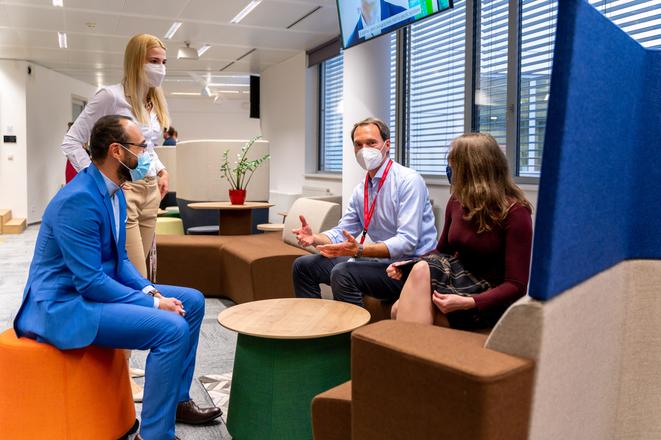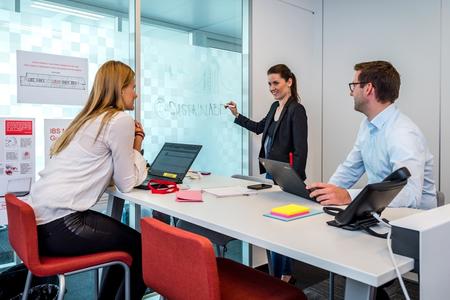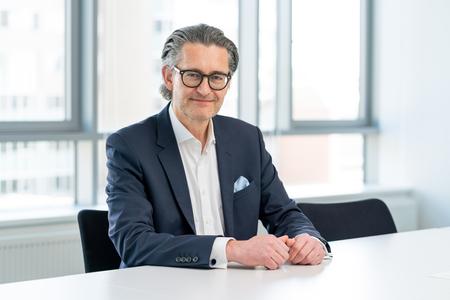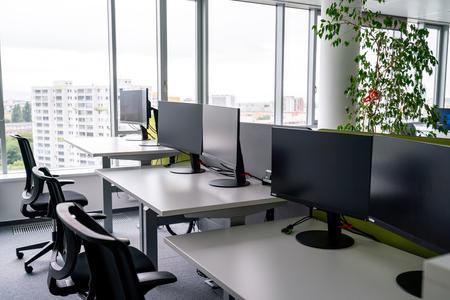In February 2022, The Slovak Spectator published its Business Focus on the business service sector. Here is your overview of stories from this focus issue:
Recognition lags behind the economic power of the sector
Working for a business service centre is no different than any other office job in Slovakia.
“You are just doing it in a different language, for a different market, but you are doing the same thing like for any Slovak company,” said Martin Bednár, vice-chair of the Business Service Center Forum (BSCF), an industry association running under the American Chamber of Commerce (AmCham) in Slovakia.
BSCs harness Slovakia’s skills, innovation and creativity
When companies started establishing their business service centres in Slovakia in the 2000s, the country’s lures for the sector were its geographical position in Europe's centre and its low costs for a skilled labour force. Now, the industry that has silently grown into one of the biggest in Slovakia’s economy no longer relies on the economic model of cheap labour. Its representatives say that there is a lot of potential in the country for the arrival of new centres as well as the expansion of existing ones, particularly by taking on more demanding roles.
“Business service centres are an indicator of the country’s potential,” Peter Rusiňák, coordinator of the Business Service Center Forum (BSCF) industry association running under the American Chamber of Commerce (AmCham), told The Slovak Spectator. “They are a great step from the manufacturing economy on the way to Industry 4.0.”
Slovakia’s potential for BSCs still not fully tapped
The Czech Republic is only twice as large as Slovakia when it comes to population, but the sector of shared service and business service centres is three times larger. This indicates that the potential of Slovakia has not been fully used. Increased engagement not only by the government, but also municipalities and self-governing regions will certainly help advance Slovakia’s competitiveness and attractiveness in this industry, says Rusiňák.
Life-long education is the answer to the lack of skilled labour force
The evolution of business service centres (BSCs) into centres with higher added value services completely changes the skills and qualities companies are searching for on the Slovak market.
In some areas, Slovakia is still able to deliver on their requirements; the local workforce is willing to learn on the job and take on new roles to fulfil the needs of centres. In other areas, the workforce shortage is a problem that the leaders of the sector deal with on a daily basis. Each have their own mix of solutions, mostly composed of cooperation with universities, life-long learning programmes, and hiring people from abroad. These efforts are conducted by the companies individually, but as well as coordinated programmes within their industrial association, the Business Service Center Forum (BSCF).
Qualified foreign workers safeguard jobs in Slovakia in the long run
Business service centres in Slovakia are gradually transforming from unfulfilling, transactional roles to activities requiring special skills and expertise. The story of Henkel’s business service centre in Bratislava follows this trend. In 15 years, it has developed into a centre that provides advantageous activities for the whole corporation.
The Slovak Spectator spoke with Christian Schulz, President of Henkel Slovensko and Head of Global Business Solutions+ Bratislava, about the impacts of the pandemic and the changing workforce needs of the centre he leads.
Focus at home, team up at work
Unlike many other sectors, the business service centre (BSC) sector experienced very few difficulties with the pandemic-induced transition to across-the-board home office operation. Two years into the pandemic, office life has not been restored to its previous form and BSCs are in the process of deciding whether it ever should. Most may not return to the way things were.
“The pandemic has made it easier for BSC employees to work remotely, and we do not envision a complete reversal to the traditional office set up once the pandemic passes," Lygia Fullbrook, director of KPMG in Slovakia and the sector leader for shared service centres, told The Slovak Spectator. The centres will likely focus on combining the best of both worlds, the hybrid model, matching the flexibility of remote working together with working from the office for team development and learning needs, she added.








